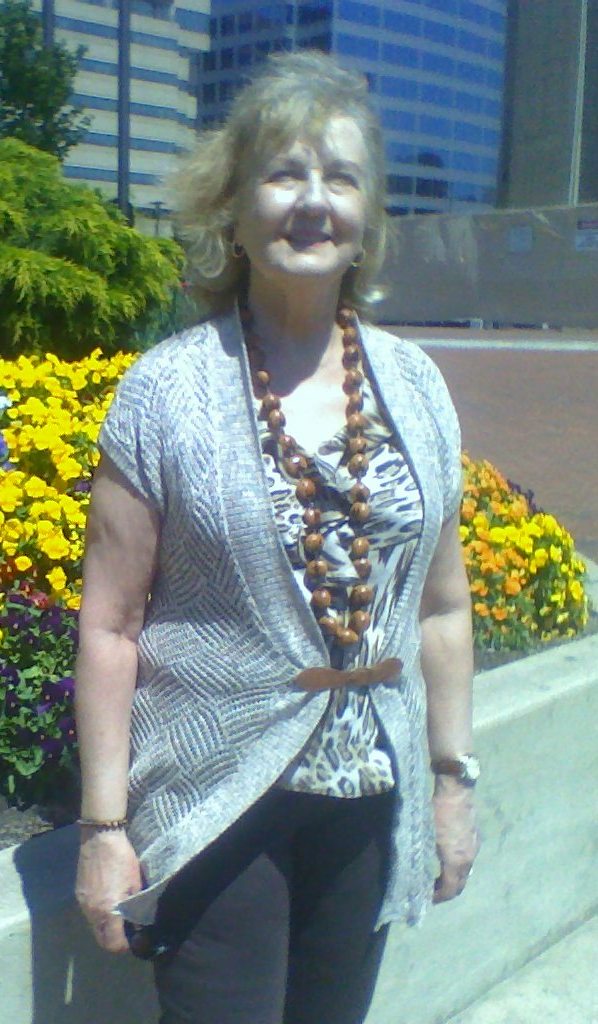
Mary Johnson’s book, An Unquenchable Thirst proved to be a work of great importance for me. The author showed great passion in reporting the events in her life while a nun with the Missionaries of Charity. Especially since this was Mother Teresa’s order, Mary Johnson exhibited amazing courage in this undertaking.
I, not being of the faith, was given an insight into the life of nuns that I don’t think I could have attained elsewhere. I grew up in an Italian, Catholic neighborhood in Brooklyn, N.Y., and nuns were always a mystique to me. As a child I’d see them in the subway stations or near the churches. I envisioned their lives to be entirely devoted to God and to good works. It’s a very noble calling.
I also have in my memory a movie that was produced in the 1960’s titled Francis of Assisi which was about the patron saint of animals. Co-starring in this film was a beautiful actress by the name of Dolores Hart, and she portrayed a nun named Clare. Subsequently, she became an actual cloistered nun. What motivated her to do this? She sought out religion after a meeting with the Pope, (who said to her, ‘you are Clare’) and was encouraged by the nuns she worked with in researching her role in the film.
The first time I spoke to a nun was at the Catholic hospital where my husband worked in upstate New York. The conversation was brief and quite mundane, but I realized that nuns can and do have senses of humor and judging from the one I engaged in conversation, are indeed understanding.
Mary Johnson opens up in this book and takes you to the “backstage” area where the nuns live and interact. She reveals her most intimate experiences and lets us take a peek at her psyche. She begins at the time she was an idealistic high school student with aspirations of working with Mother Teresa. A photo on the front page of Time magazine called out to Mary Johnson. She wanted to make a difference in the world, and Mother Teresa was the stellar role model.
When she first entered the convent, Mary was often told that she should ask Jesus to make her “meek and humble.” Meek and humble don’t always go hand and hand with being the star of a debate team, which she was in high school. One has to have a probing nature to accomplish this as well as a curious mind. This may serve as a foreshadowing for Mary’s angst.
She “successfully” stayed for twenty years in the M.C. order, trying very desperately to follow all of the “Rules.” She was tolerant, disciplined, and lived an extremely stoic life. The sisters were also encouraged to physically suffer by means of self-flagellation with chains. The rationale for this was to relate to the pain that Jesus had to endure.
Sister Donata’s (the name Mary was known by in the order) motivation was to help the poor and make a difference in their lives. Mother Teresa obviously was wonderful at doing this, and was given the Nobel Peace Prize for her work.
Mary was conflicted because she wanted to do the good works for the poor but couldn’t come to terms with having to put up with many rules, one of which states that you are not to have human physical contact nor deep friendships. Their Constitution could not have a rule bent. This created a deep loneliness, and she longed for human contact. She didn’t see why one couldn’t serve the poor and also fulfill her own human needs. She also couldn’t bear the idea of not being able to think for oneself and to accept everything stated even if it lacked sensibility. She found some of the nuns narrow minded.
So, Mary had to do some deep soul searching. She eventually concluded that, “I’ve learned to be content with mystery, that the universe and its secrets excite me…living mindfully, trying to do good while avoiding harm works better than keeping the Rules ever did.”
I wondered if Mary Johnson ever explored the Unitarian-Universalist religion because that is one of their beliefs.
Writing a review such as this is somewhat frustrating in that I have to leave out so many stimulating passages, ideas, and facts for the sake of brevity. Yet the following is a passage that really rang a bell with me:
“Repetitive vocal prayers in the chapel irritated me…I wanted to be alone with God at least every now and then, without any words--especially not someone else’s words” It’s a personal relationship with God that I also long for… and a social relationship with fellow humans.
Ultimately, Mary Johnson left the order. She rejected the notion that one had to suffer torture and pain to please God. “So much depends on the stories we tell ourselves, and on the questions we ask, or fail to ask.”
I strongly recommend this book to everyone over the age of fifteen.
Roz Mansouri is a Home/Hospital Teacher in Frederick County. Born and raised in Brooklyn, she and her late husband, a physician, lived in metro DC and Elmira, NY before moving to Maryland eighteen years ago. Her interests include writing, theater, music, travel, and her four grandchildren. She's in a book club with Mary Johnson's sister.